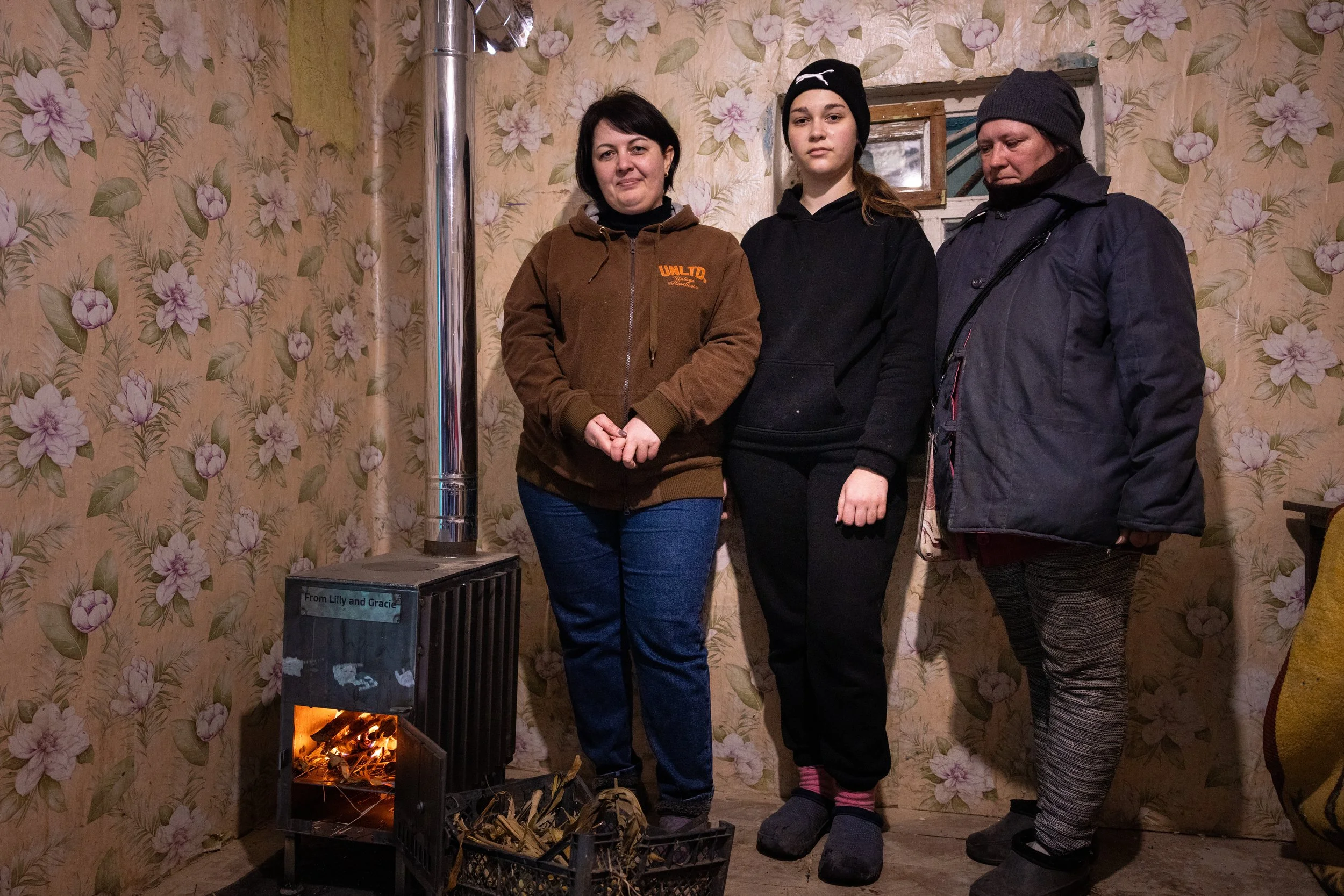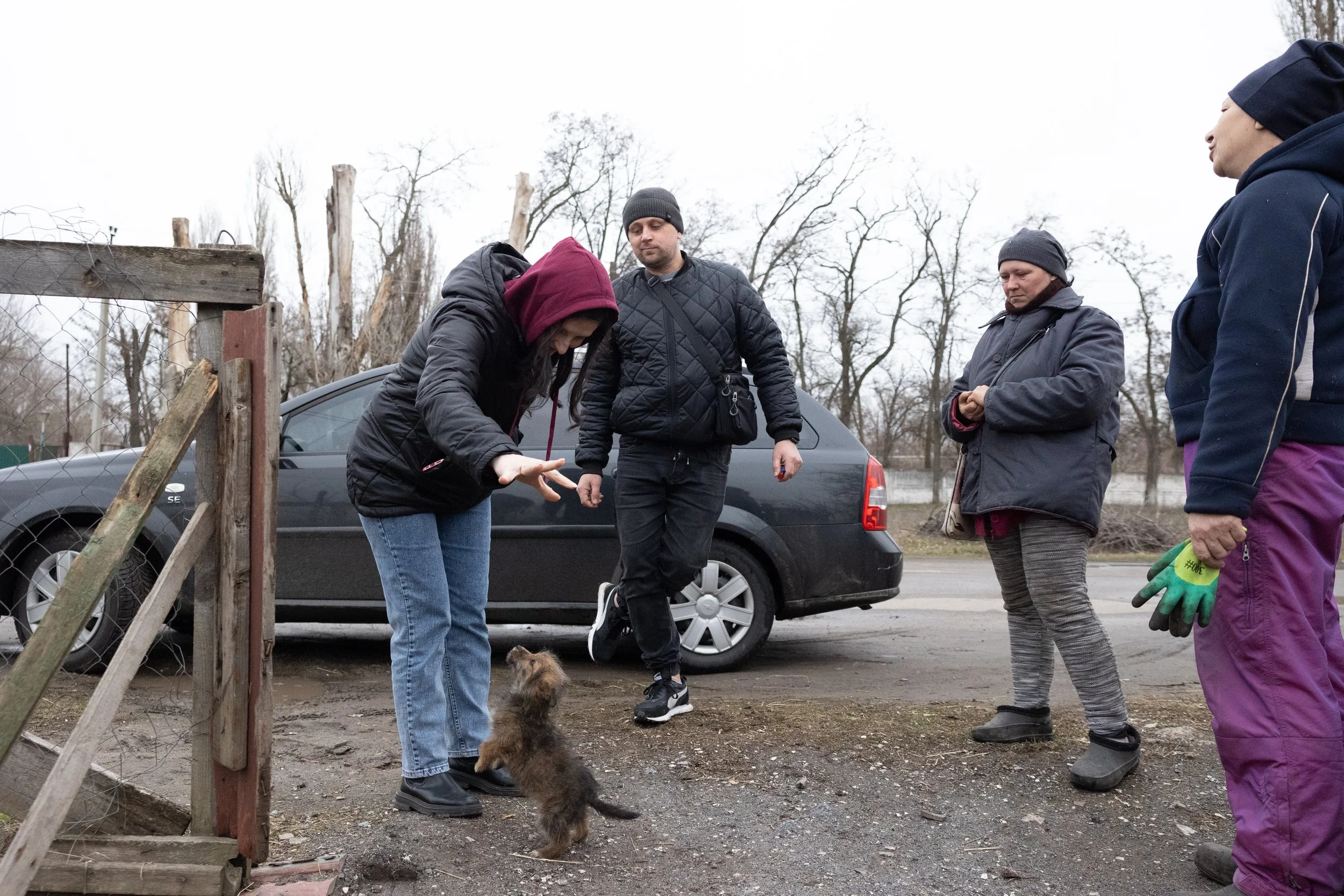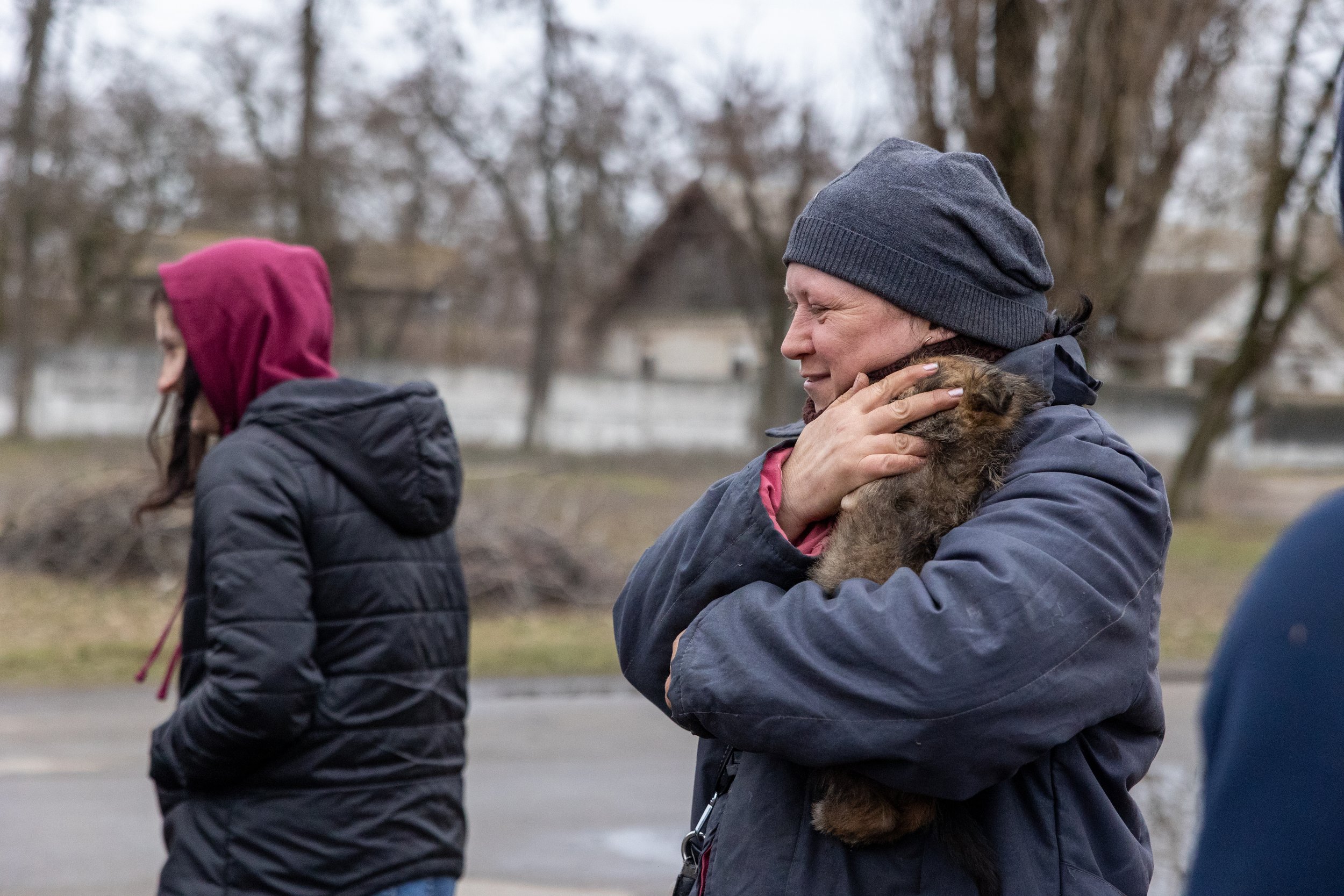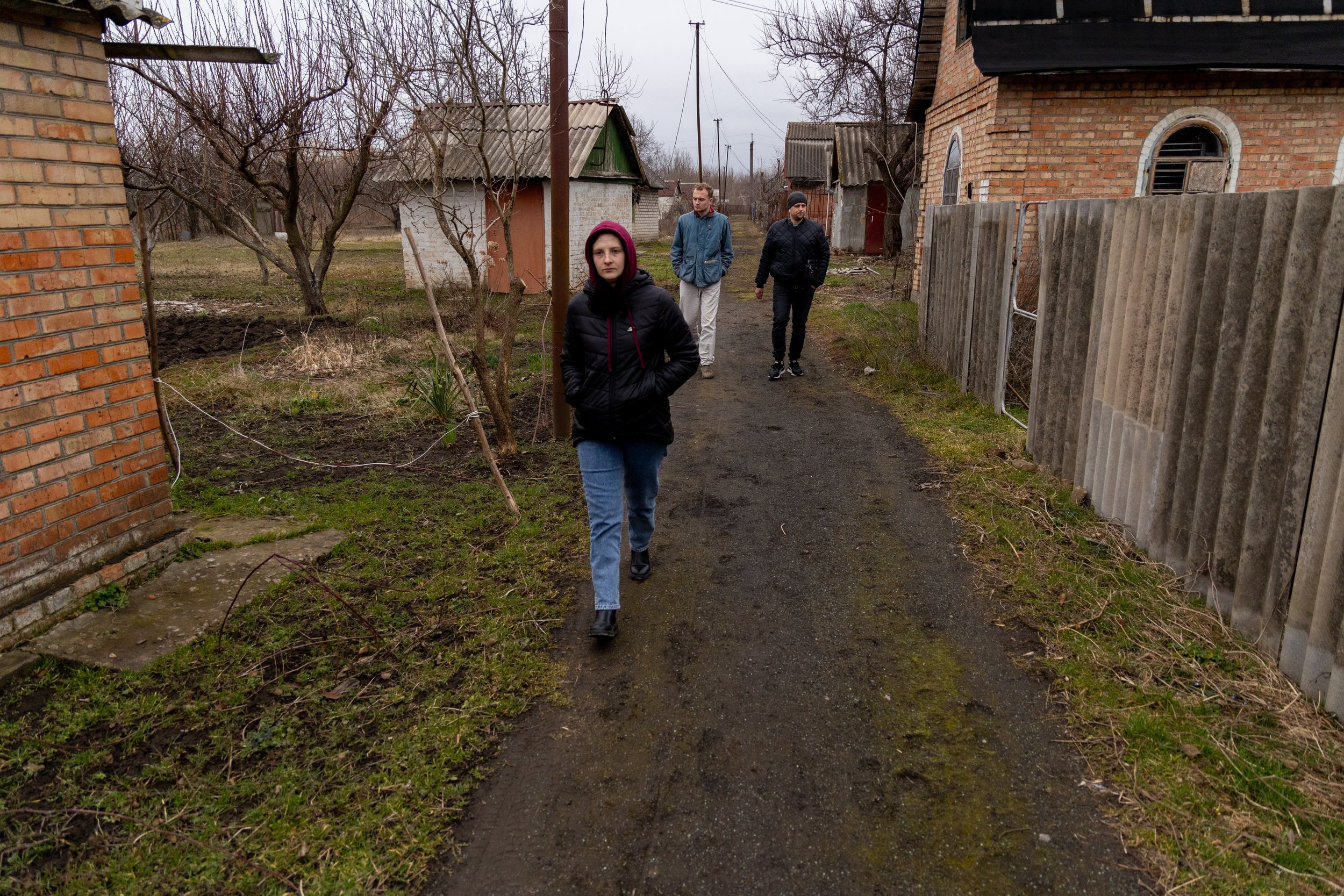Nikopol, Ukraine
Natalia, her sister and niece, stand outside of the small summer home, a "Dacha." These small houses are normally spaces for summer reverie, places for picnics and barbecues , a space to grow vegetables, a place of peace.
Natalia lived on the banks of the Kakhovka reservoir , as the Russians spread through Ukraine - her home was soon directly opposite russian positions, and in a direct line of fire. After her neighbors home was leveled by shelling, she decided to leave. With nowhere to call home, her and her family settled in this small Dacha. The summertime space soon became their full time home.
The family lived through two winters in this space, combatting the bitter cold with an electric space heater that would only be turned on when there was electricity in the city. Even then, the high costs of electrical power meant Natalia and her family often had to do without heat.
On the day of our arrival, the team at Ukrainian Children installed a wood burning stove. The effects on the home were immediate, warmth. For Natalia, her happiness in receiving the stove was marred by a terrible realization. Her brother had been missing for months. The local administration in the nearby town where he lived had identified his body through DNA analysis, his body charred beyond recognition after his home was hit by a bomb. Natalia's sister and niece were returning to Nikopol that day with his remains. He would be buried at home.
Home. Home is where we live, it is where we raise families, it is where our memories are held. Sometimes, it is where we are buried.
Before we left Natalia's house, we overheard her talking to her family. "They ask why we don't leave home. Well we are just steadfast tin soldiers aren't we? This is our Nikopol." "And home is better than just somewhere"











